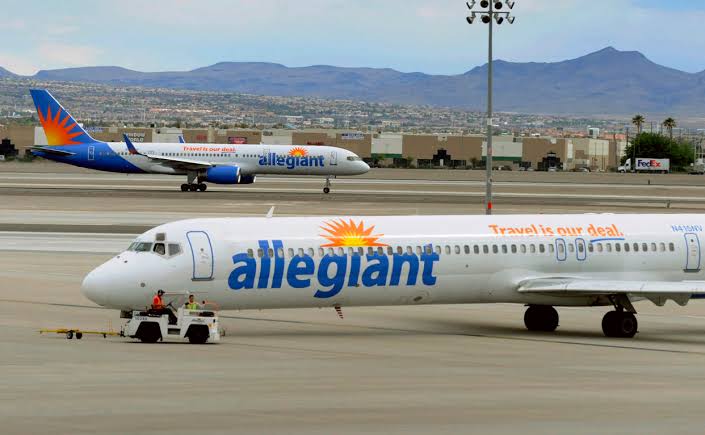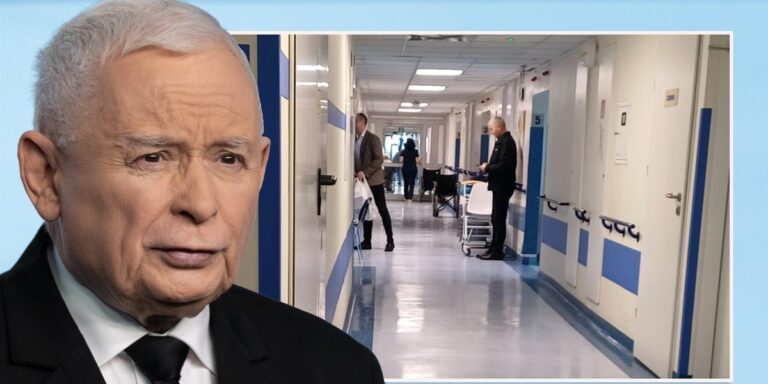Allegiant airlines Grounds All Flight Due To Recent Mishap
Allegiant Airlines Grounds All Flights Following Recent Mishap: Passengers Stranded Nationwide
By Staff Reporter
In a shocking move that has sent ripples across the U.S. travel industry, Allegiant Airlines announced the temporary grounding of its entire fleet following a recent mid-air mishap that resulted in multiple fatalities and injuries. The sudden decision has left thousands of passengers stranded at airports nationwide and raised fresh concerns about aviation safety protocols and the future of the budget airline.
The grounding was confirmed early Tuesday morning, less than 48 hours after Flight 227, en route from Asheville, North Carolina to St. Petersburg, Florida, dropped 5,000 feet in under two minutes. The incident, which tragically claimed six lives and injured more than a dozen passengers and crew, prompted immediate investigations by the Federal Aviation Administration (FAA) and National Transportation Safety Board (NTSB).
In a statement issued by Allegiant’s CEO Maurice Gallagher Jr., the company said, “In light of the recent and deeply tragic incident involving Flight 227, Allegiant Airlines has decided to voluntarily ground all scheduled flights across the country to conduct a thorough internal review of our aircraft, operational procedures, and safety systems. We are prioritizing the safety of our passengers and employees above all else.”
Thousands Affected by Nationwide Grounding
The grounding came as a surprise to travelers, particularly those flying for spring and early summer vacations. At major hubs such as Las Vegas, Orlando, and Phoenix, long lines formed at Allegiant check-in counters as frustrated passengers scrambled to rebook with alternative carriers or cancel their travel plans altogether.
“I showed up for my flight to Cincinnati and found out at the gate that all Allegiant flights were suspended,” said Jessica Monroe, a 28-year-old traveler from Tampa. “There were no announcements in advance, no emails. Just chaos.”
The airline has since set up emergency customer service hotlines and refund portals, but the sheer volume of affected customers—estimated at over 45,000 in the first 24 hours—has overwhelmed support systems.
Allegiant has pledged to fully refund all affected passengers and cover accommodations for those stranded mid-transit. However, some customers say the response has been slow and confusing.
“We understand the inconvenience this has caused,” said Allegiant spokesperson Maria Caldwell. “But we also believe this decision is necessary to protect the safety and peace of mind of our passengers. We are working around the clock to support everyone impacted by this action.”
FAA and NTSB Begin In-Depth Investigations
The FAA and NTSB have launched parallel investigations into the Flight 227 mishap, which resulted in the aircraft plunging rapidly from cruising altitude and experiencing severe in-cabin turbulence. Investigators are analyzing flight data recorders, interviewing crew members, and inspecting the Airbus A320 involved in the crash-like descent.
Initial reports suggest the cause may involve a sudden and violent atmospheric disturbance, compounded by potential autopilot malfunctions or structural instability. While mechanical failure has not yet been confirmed, Allegiant’s decision to ground all aircraft indicates that the airline is treating the issue with utmost seriousness.
“The unusual descent pattern and the magnitude of the altitude loss are not consistent with typical turbulence,” said aviation expert Dr. Rachel Langford. “It’s possible that there was a sensor failure or a malfunction in flight control systems. That kind of malfunction, if systemic, would justify a full fleet inspection.”
Allegiant’s entire fleet of over 120 Airbus A319 and A320 aircraft will undergo safety checks over the coming days. Industry insiders expect the grounding to last at least five to seven days, depending on the scope of the maintenance and investigation results.
A Wake-Up Call for the Budget Airline Industry?
Allegiant’s sudden grounding is the first time a major U.S. airline has voluntarily halted operations fleet-wide since the Boeing 737 MAX crisis in 2019. The move has reignited debate over the safety of ultra-low-cost carriers (ULCCs), which operate on thinner margins and often rely on older aircraft models.
Allegiant, in particular, has faced scrutiny over its safety practices in the past. A 2018 “60 Minutes” investigation raised concerns about its maintenance procedures and emergency landings. While the airline defended its record and pointed to FAA clearance, the shadow of that report still lingers.
Aviation analyst Mark Drennan noted, “Allegiant has carved out a niche in serving smaller airports with low-cost fares, but with that comes operational pressure. If safety is compromised—even once—the public’s trust can erode very quickly.”
Other low-cost airlines, including Frontier and Spirit, are closely monitoring the situation, fearing spillover effects on consumer confidence. “Passengers often group budget airlines together in perception,” Drennan added. “One airline’s problem can impact them all.”
Union and Employee Responses
Allegiant’s pilots’ union, flight attendants, and ground crew representatives have expressed support for the airline’s decision to suspend operations. In a joint statement, the unions said, “We mourn the lives lost in this tragedy and support the company’s decision to prioritize safety. Our members are fully committed to assisting investigators and ensuring the safe return of all flights.”
However, internal sources report growing concern among employees about the long-term impact of the shutdown. Many fear loss of income if the grounding extends beyond several days, and there is anxiety about the public’s response once operations resume.
“We’re proud of our jobs and the service we provide,” said a flight attendant based in Las Vegas who asked to remain anonymous. “But this incident shook us. We need answers too.”
Political and Industry Reactions
Several U.S. lawmakers have called for congressional hearings on airline safety following the Allegiant incident. Senator Maria Cantwell, chair of the Senate Committee on Commerce, Science, and Transportation, announced that her committee will “closely examine the events leading up to the Flight 227 mishap and Allegiant’s overall safety record.”
Meanwhile, the FAA emphasized that all U.S. airlines are required to meet rigorous safety standards and that “any evidence of systemic issues will be dealt with swiftly and thoroughly.”
The airline industry has been under increased pressure post-COVID to balance recovery with safety and performance. With Allegiant’s grounding now in full effect, the spotlight has turned to how the carrier—and the broader low-cost airline sector—responds.
The Road Ahead
Allegiant Airlines has not provided a firm timeline for the return of its services. In the meantime, customer confidence hangs in the balance, and the company faces both logistical and reputational challenges.
For now, grounded passengers wait, investigators dig for answers, and the airline industry watches closely—reminded once again that safety, no matter the cost, must remain the top priority.
—






